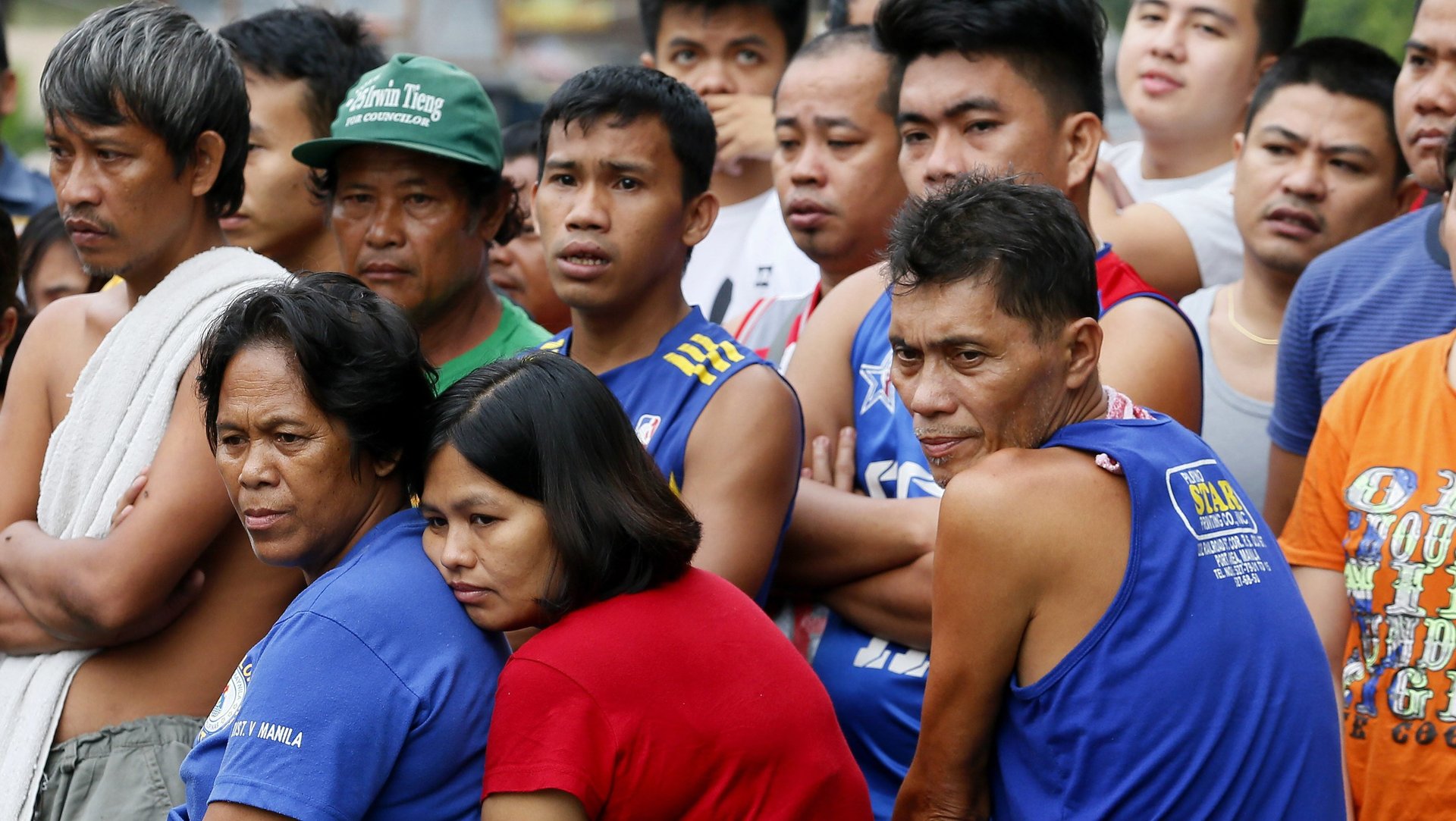Making sense of why Filipinos fear Duterte’s war on drugs but approve of him so highly
The majority of Filipinos are worried a family member will be a victim in Rodrigo Duterte’s war on drugs, but still, many say they’re satisfied with how the government is handling things, a recent survey revealed.


The majority of Filipinos are worried a family member will be a victim in Rodrigo Duterte’s war on drugs, but still, many say they’re satisfied with how the government is handling things, a recent survey revealed.
These contradicting feelings about the crackdown that has killed close to 6,000 people are in the latest report released by Social Weather Stations, a nonprofit research group in the Philippines made up of economics, sociology, and political science experts. They surveyed 1,500 Filipinos across the country from Dec. 3 to 6.
Forty-five percent of respondents said they’re very worried over a family member being killed, and 71% believed it was very important that those linked to illegal drugs are kept alive.
https://www.theatlas.com/i/atlas_Byyh4NINg.png
These concerns are in stark contrast with the 85% of respondents who said they were satisfied with the Duterte administration’s performance.
https://www.theatlas.com/i/atlas_SJLS8N8Ee.png
Ramon Casiple, executive director of the Institute for Political and Electoral Reform, explains this inconsistency in people’s views: “The fear of the people, as I interpret the survey, is not about a rejection of the killings per se but rather the fear that innocent people and mere drug users may be killed.” While people generally felt the crackdown has reduced the drug problem in their community, their opinions shifted when it came to personal questions involving themselves or people they know.
Despite the controversies, Duterte remains extremely popular in the Philippines, with an 86% approval rating in October. “The global scrutiny, particularly in raising the issue of extrajudicial killings, does not resonate with ordinary Filipinos who voted for him since this was part of the campaign promise from the start and form part of the reason for voting him into the presidency,” Casiple adds.
Filipinos’ attitudes toward the police is much different though. The Philippine National Police has maintained that people counted in the death toll included suspects who resisted arrest. People were mixed on whether they felt this was true. Twenty-nine percent of respondents didn’t believe the police were telling the truth while 28% felt the force was probably or definitely telling the truth. The rest, at 42%, were undecided on the matter.